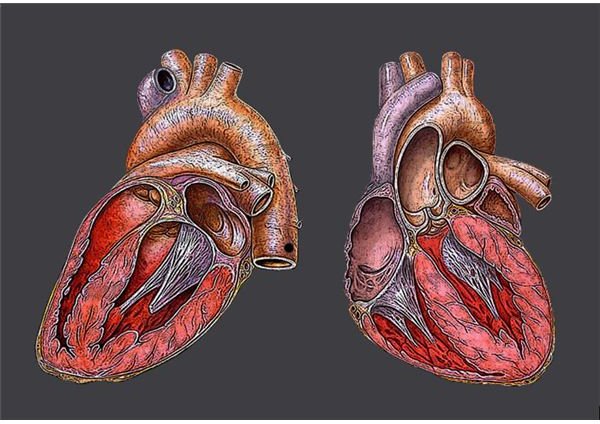What Causes Heart Palpitations and What Medical Conditions Are They Associated With?
When the heartbeat is fast, hard and pounding, it is known as a heart palpitation. Palpitations are always a symptom of something, but in most cases, not something very serious. However, they should always be evaluated by a doctor.
Mitral Valve Prolapse
This condition is characterized by the heart’s mitral valve not closing properly. It is estimated that as many as 10 percent of the population has a
minor form of mitral valve prolapse, according to MedlinePlus. Some patients will not experience any significant lifestyle impact with this condition, while others will experience life-altering symptoms. The symptoms, often referred to as “mitral valve prolapse syndrome”, include:
- Heart palpitations
- Trouble breathing after activity
- Cough
- Chest pain
- Fatigue
- Shortness of breath when the patient is lying flat
To diagnose this condition, the following tests are often performed:
- Echocardiogram
- Cardiac catheterization
- ECG
- Chest CT scan
- Color-flow doppler examination
- Chest x-ray
- Chest MRI
In severe cases, surgery to replace or repair the mitral valve may be necessary. Certain medications are the most common treatment. These medications include:
- Anti-arrhythmic drugs to help keep irregular heartbeats under control
- Propranolol to help relieve chest pain and heart palpitations
- Diuretics to help flush out excess fluid accumulating in the lungs
- Blood-thinning medications to help prevent blood clots in patients with atrial fibrillation
Drug-Related Causes
Certain medications have the potential to cause this symptom. Certain drugs can also cause palpitations. Such drugs and medications can include:
- Caffeine
- Cocaine
- Diet pills (especially those containing stimulants)
- Nicotine
- Thyroid medications
- High blood pressure medications
- Medications to treat other heart conditions
- Asthma medications
Generalized Anxiety Disorder
This is a condition that causes heart palpitations. It is characterized by excessive worry and exaggerated anxiety about things that happen in everyday life without an obvious reason. It can be caused by brain chemistry, genetics and environmental factors. Patients with this disorder can experience:
- Heart palpitations
- Ongoing, excessive tension and worry
- Restlessness or feeling on edge
- Muscle tension
- Sweating
- Nausea
- Tiredness
- Trembling
- Unrealistic view of problems
- Irritability
- Headaches
- Difficulty concentrating
- Frequent urination or bowel movements
- Trouble staying asleep or falling asleep
- Being easily startled
Treatment is given to patients who have been definitively diagnosed by a psychiatrist. Psychiatrists most often administer the treatment. A combination of cognitive-behavioral therapy and medications is the most common mode of treatment. The medications used to treat this disorder include:
- Benzodiazepines (sometimes referred to as tranquilizers)
- Antidepressants
Resources
FamilyDoctor.org. (2005). Heart Palpitations. Retrieved on August 25, 2010 from FamilyDoctor.org: https://familydoctor.org/online/famdocen/home/articles/831.html
MayoClinic.com. (2009). Heart Palpitations. Retrieved on August 25, 2010 from MayoClinic.com: https://www.mayoclinic.com/health/heart-palpitations/DS01139
MedlinePlus. (2010). Mitral Valve Prolapse. Retrieved on August 25, 2010 from MedlinePlus: https://www.nlm.nih.gov/medlineplus/ency/article/000180.htm
Image Credits
Heart: Heikenwaelder Huge – Wikimedia Commons
